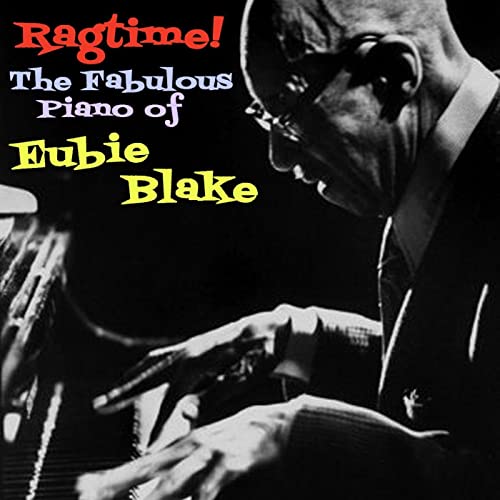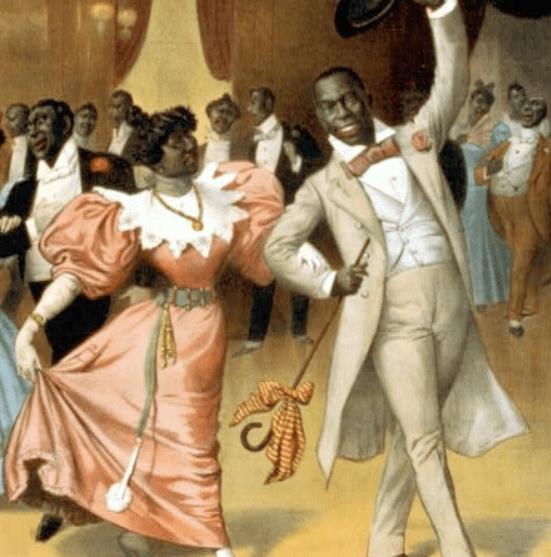The 1920s in America brought economic prosperity, hopes of the American dream, and new art innovations. Ragtime music was the theme music to the popular Roaring 20s. Money was of no object to people, and the parties never seemed to end. Unfortunately, the 1920s for black people meant a small portion of the economic prosperity in the form of dehumanization. Acts like the cakewalk and coon songs were conjured up by white audiences to further deny Black Americans. However, an extraordinary musician, Eubie Blake, would break through barriers, and become the face of ragtime.

For instance, the Cakewalk dance is an infamous dance where slaves would pomp and dance around like their slave master; it was a dancing competition that prized the winner with a cake for the best cakewalk. The cakewalk diminished the humanity of black Americans because they were forced to perform for their white masters. At the same time, coon songs were popular in America. Coon songs were performed by white performers to mock the black race by categorizing them as lazy, good for nothing, and drunks. Coon songs would later be in jingles, radio shows, and just about everything considered American. Although the Ragtime period was filled with discrimination and racism like many other times periods in the US, stars like Eubie Blake would rise and capture the hearts and souls of many. Eubie Blake would defy the odds when his exceptional piano skills surpassed expectations, which later would cultivate the ragtime era. Black’s most notable song was the Charleston Rag which flooded the airways because of its upbeat tempo and happy tone.

For instance, the Cakewalk dance is an infamous dance where slaves would pomp and dance around like their slave master; it was a dancing competition that prized the winner with a cake for the best cakewalk. The cakewalk diminished the humanity of black Americans because they were forced to perform for their white masters. At the same time, coon songs were popular in America. Coon songs were performed by white performers to mock the black race by categorizing them as lazy, good for nothing, and drunks. Coon songs would later be in jingles, radio shows, and just about everything considered American. Although the Ragtime period was filled with discrimination and racism like many other times periods in the US, stars like Eubie Blake would rise and capture the hearts and souls of many. Eubie Blake would defy the odds when his exceptional piano skills surpassed expectations, which later would cultivate the ragtime era. Black’s most notable song was the Charleston Rag which flooded the airways because of its upbeat tempo and happy tone.

For a period like the 1920s that was filled with flashy cars lavish and luxurious lifestyle, only ragtime music could personify that time and life the 1920s brought. However, all that glitters is not gold, and one observes that through the rise in mockery of black bodies in coon songs and cakewalk competitions. Yet, black musicians like Eubie Blake reject the false narratives conjured by haters through making timeless music.

Login to your account